FCRN Clinical and Academic Advisory Panel (CAAP)
What is the Faith Community Research Network CAAP?
The Faith Community Research Network's Clinical and Academic Advisor Panel (CAAP) is a collective of WSU faculty who partner with the FCRN with a goal of developing systems for meaningful clinician, researcher, and student engagement with FCRN member organizations.
CAAP Members
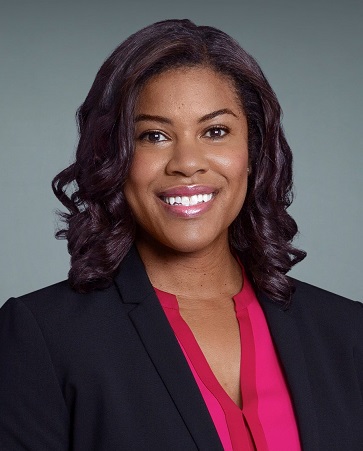
Aisha Langford, M.P.H., Ph.D., is an Associate Professor, Department of Family Medicine and Public Health Sciences at the Wayne State University School of Medicine. Dr. Langford is a member of the Society of Behavioral Medicine, the Society for Medical Decision Making, the American Heart Association and the Academy of Communication in Healthcare. She also is the associate editor for the journals Clinical Trials, and Patient Education and Counseling in Healthcare. Her key research interests include health communication and decision making, particularly how health communication can improve individual decision making and reduce population health disparities for conditions or behaviors that lead to preventable mortality and morbidity.
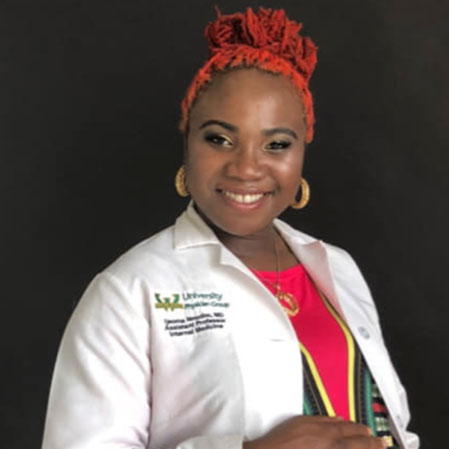 Ijeoma Opara, M.D., is an Associate Program Director for the Internal Medicine-Pediatrics Residency Program at the Wayne State University School of Medicine. Dr. Opara is the founding director of an innovative initiative and curriculum titled “Health Equity and Justice in Medicine” for internal medicine, internal medicine-pediatrics, and pediatrics residents which combines critical reflection, community engagement, scholarship, and advocacy to address social and structural determinants of health and health disparities. She is also Chair of the SEMCME committee on social determinants of health education and the Detroit Medical Center Graduate Medical Education Center for Quality Improvement, social determinant of health section. As a lead investigator in multiple interdisciplinary multi-center local and international research projects, she focuses on understanding how resilience can be leveraged as an asset to improve community health outcomes and convergence implementation science in effective professional development in structural and social determinants of health, health equity, and social justice of health professional trainees.
Ijeoma Opara, M.D., is an Associate Program Director for the Internal Medicine-Pediatrics Residency Program at the Wayne State University School of Medicine. Dr. Opara is the founding director of an innovative initiative and curriculum titled “Health Equity and Justice in Medicine” for internal medicine, internal medicine-pediatrics, and pediatrics residents which combines critical reflection, community engagement, scholarship, and advocacy to address social and structural determinants of health and health disparities. She is also Chair of the SEMCME committee on social determinants of health education and the Detroit Medical Center Graduate Medical Education Center for Quality Improvement, social determinant of health section. As a lead investigator in multiple interdisciplinary multi-center local and international research projects, she focuses on understanding how resilience can be leveraged as an asset to improve community health outcomes and convergence implementation science in effective professional development in structural and social determinants of health, health equity, and social justice of health professional trainees.
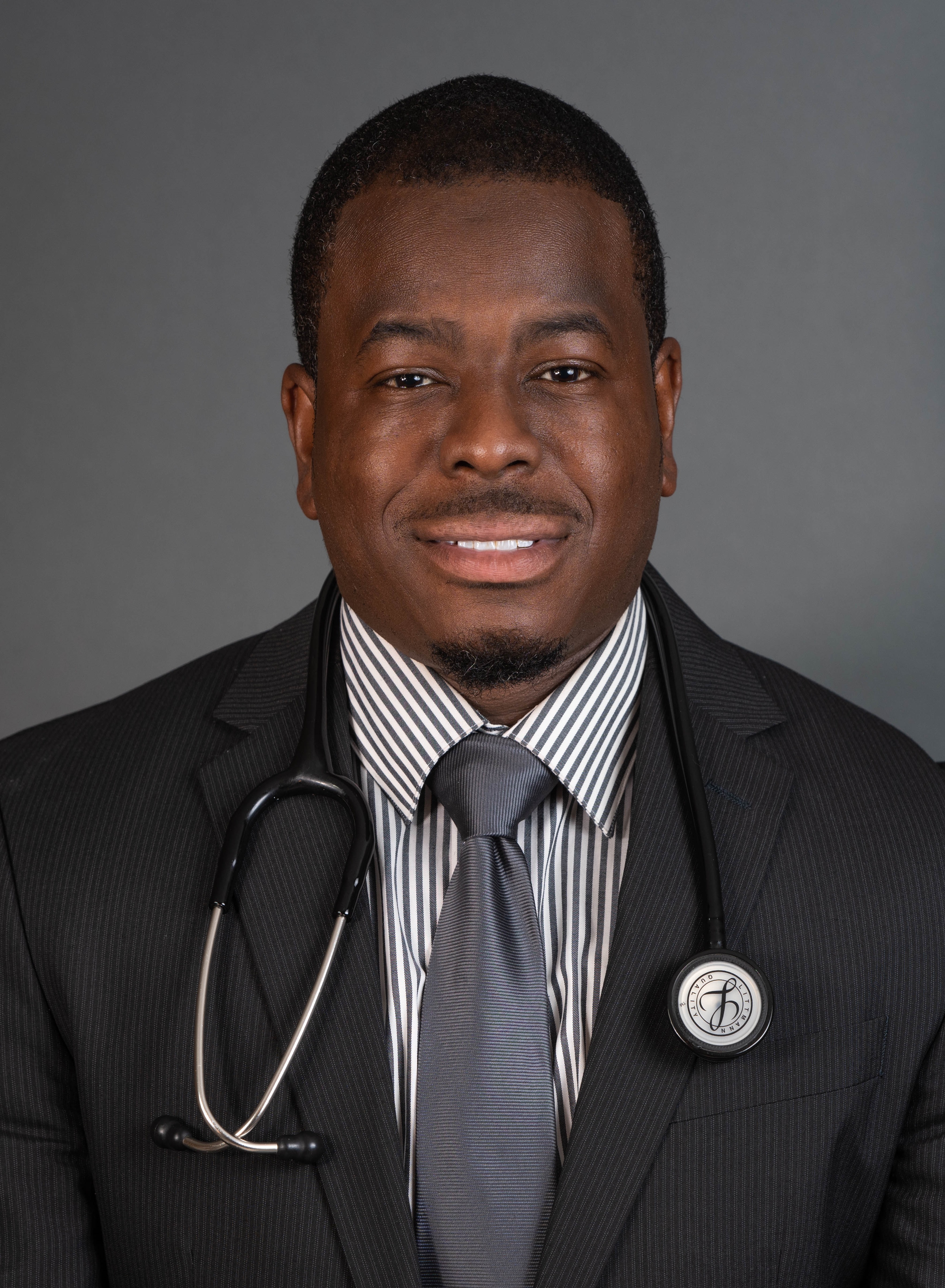 Dr. Ralph E. Williams II, M.D., FAAFP, was born and raised on the east side of Detroit, Michigan. He graduated from Wayne State University SOM in 2007 and completed residency at Providence (Ascension Southfield). He is the physician/owner of Family First Wellness Center in Southfield Michigan. As an assistant professor in the Department of Family Medicine, Dr. Williams serves a continuity clinic course director and directs a project for community physician engagement. His activities include establishing coalitions of community physicians committed to mentorship and education of the next generation of physician leaders. In addition, he serves as the medical director of Wayne State University’s Robert Frank Student Run Free Clinics. He is actively involved in the surrounding community and has served in leadership positions and many organizations and Faith based networks. Dr. Williams is a Fellow of the American Academy of Family Physicians and sits on the board of SEMAFP.
Dr. Ralph E. Williams II, M.D., FAAFP, was born and raised on the east side of Detroit, Michigan. He graduated from Wayne State University SOM in 2007 and completed residency at Providence (Ascension Southfield). He is the physician/owner of Family First Wellness Center in Southfield Michigan. As an assistant professor in the Department of Family Medicine, Dr. Williams serves a continuity clinic course director and directs a project for community physician engagement. His activities include establishing coalitions of community physicians committed to mentorship and education of the next generation of physician leaders. In addition, he serves as the medical director of Wayne State University’s Robert Frank Student Run Free Clinics. He is actively involved in the surrounding community and has served in leadership positions and many organizations and Faith based networks. Dr. Williams is a Fellow of the American Academy of Family Physicians and sits on the board of SEMAFP.
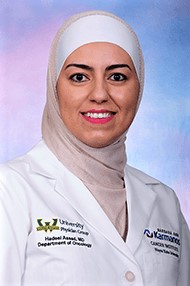 Hadeel Assad, M.D. , is a medical oncologist and member of the Breast Cancer and Phase I Clinical-Pharmacology Multidisciplinary Teams (MDTs) at Barbara Ann Karmanos Cancer Institute. She received her medical degree from University of Jordan Faculty of Medicine and has been in practice between for more than a decade. Dr. Assad has expertise in treating lung cancer and breast cancer, among other conditions.
Hadeel Assad, M.D. , is a medical oncologist and member of the Breast Cancer and Phase I Clinical-Pharmacology Multidisciplinary Teams (MDTs) at Barbara Ann Karmanos Cancer Institute. She received her medical degree from University of Jordan Faculty of Medicine and has been in practice between for more than a decade. Dr. Assad has expertise in treating lung cancer and breast cancer, among other conditions.
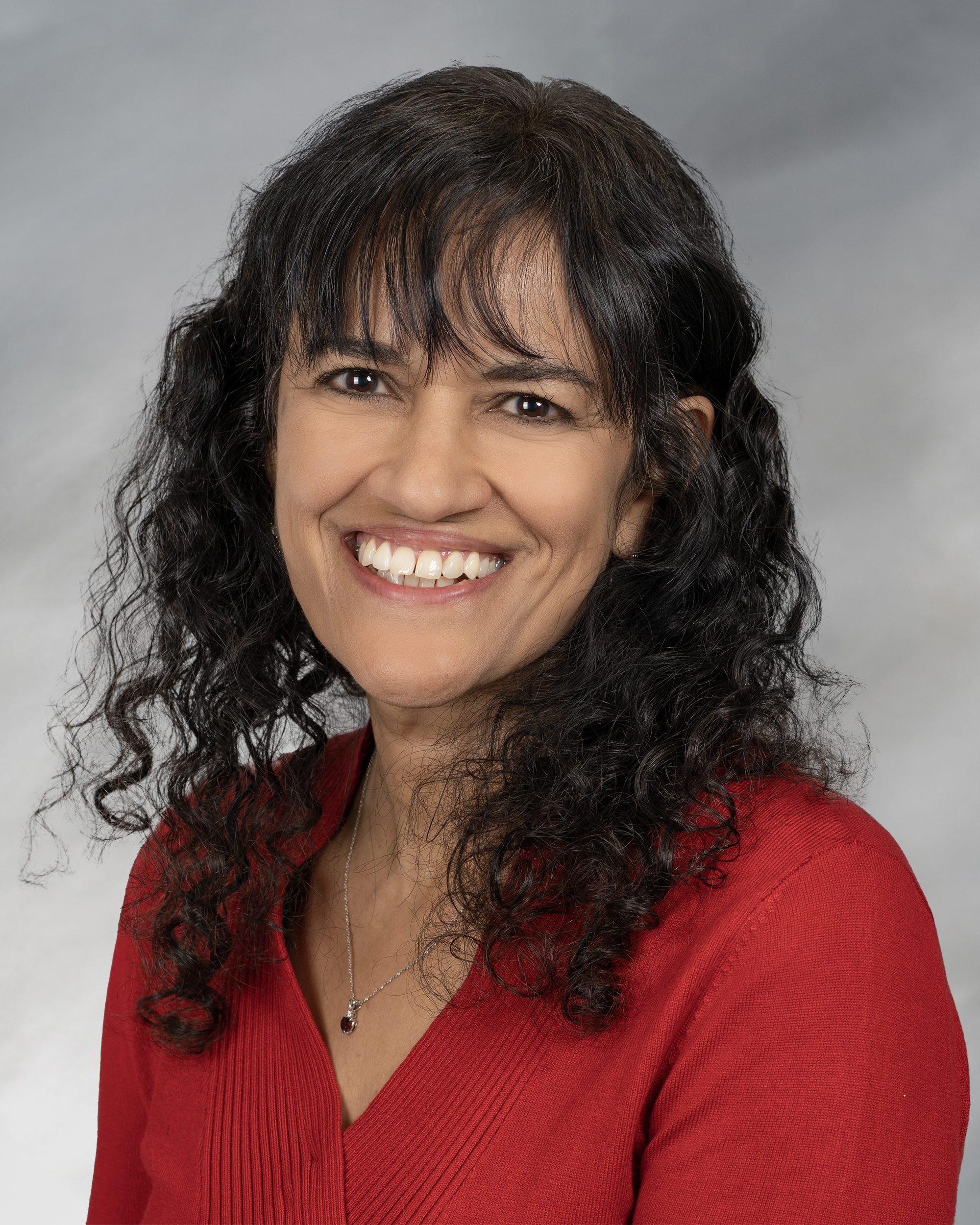
Angela M. Trepanier, MS, LCGC is a genetic counselor, a professor (clinician educator) in the Center for Molecular Medicine and Genetics, and the director of Wayne State University’s Genetic Counseling Graduate Program. Her research focuses on developing and evaluating educational approaches for integrating genomics into primary care and creating and evaluating ways to increase access to genetic counseling services.
 Morhaf Al Achkar, M.D., Ph.D., is an associate professor of Oncology at the Wayne State University School of Medicine and serves as the Associate Center Director for Education at the Barbara Ann Karmanos Cancer Institute. As a lung cancer survivor, Dr. Al Achkar emphasizes the importance of early detection, prevention and screening through his work as a family physician. His research focuses on improving access to second opinions and specialist oncologists, and disparities in lung cancer diagnoses. His latest study examines the systemic issues and access challenges that contribute to lung cancer diagnosis disparities. Dr. Al Achkar is dedicated to examining how discrimination and racism affect experiences, collaborating with minority communities, especially African American, Arabic-speaking Middle Eastern and North African communities.
Morhaf Al Achkar, M.D., Ph.D., is an associate professor of Oncology at the Wayne State University School of Medicine and serves as the Associate Center Director for Education at the Barbara Ann Karmanos Cancer Institute. As a lung cancer survivor, Dr. Al Achkar emphasizes the importance of early detection, prevention and screening through his work as a family physician. His research focuses on improving access to second opinions and specialist oncologists, and disparities in lung cancer diagnoses. His latest study examines the systemic issues and access challenges that contribute to lung cancer diagnosis disparities. Dr. Al Achkar is dedicated to examining how discrimination and racism affect experiences, collaborating with minority communities, especially African American, Arabic-speaking Middle Eastern and North African communities.
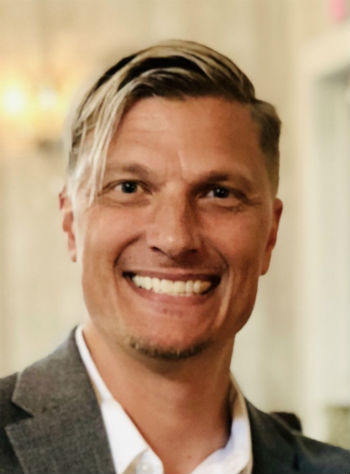 Seth D. Norrholm, PhD, is a translational neuroscientist with over 20 years of research experience in furthering the understanding of the neurobiological mechanisms underlying fear-, anxiety-, trauma-, and stressor-related disorders and the psychiatric conditions with which these disorders are co-morbid. Dr. Norrholm has trained in both the “classical” bench-based neurosciences as well as within clinical arenas dedicated to the treatment of mood and anxiety disorders. Together with a network of collaborators, he has employed objective, psychophysiological methods to study the underpinnings of mammalian fear processing as well as the mechanisms mediating effective treatments for fear and anxiety. Dr. Norrholm is a recognized world leader in posttraumatic stress disorder (PTSD).
Seth D. Norrholm, PhD, is a translational neuroscientist with over 20 years of research experience in furthering the understanding of the neurobiological mechanisms underlying fear-, anxiety-, trauma-, and stressor-related disorders and the psychiatric conditions with which these disorders are co-morbid. Dr. Norrholm has trained in both the “classical” bench-based neurosciences as well as within clinical arenas dedicated to the treatment of mood and anxiety disorders. Together with a network of collaborators, he has employed objective, psychophysiological methods to study the underpinnings of mammalian fear processing as well as the mechanisms mediating effective treatments for fear and anxiety. Dr. Norrholm is a recognized world leader in posttraumatic stress disorder (PTSD).
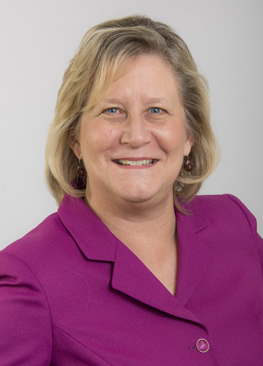 Ramona Benkert, PhD, ANP-BC, FAANP, is an internal medicine nurse practitioner and nurse scientist. Dr. Benkert conducts research focused on explicating the role of medical mistrust, racial identity and cultural competence on adherence to primary care recommendations and quality of care. Her research has focused on the role of nurse practitioners and other primary care providers in nurse managed and traditional primary care settings. She has received numerous Health Resources and Services Administration (HRSA) grants and is currently the principal investigator for the statewide Area Health Education Center (AHEC) in Michigan and the PI of a Nurse Education, Practice, Quality and Retention (NEPQR) grant focused on enhancing the registered nurse role in primary care.
Ramona Benkert, PhD, ANP-BC, FAANP, is an internal medicine nurse practitioner and nurse scientist. Dr. Benkert conducts research focused on explicating the role of medical mistrust, racial identity and cultural competence on adherence to primary care recommendations and quality of care. Her research has focused on the role of nurse practitioners and other primary care providers in nurse managed and traditional primary care settings. She has received numerous Health Resources and Services Administration (HRSA) grants and is currently the principal investigator for the statewide Area Health Education Center (AHEC) in Michigan and the PI of a Nurse Education, Practice, Quality and Retention (NEPQR) grant focused on enhancing the registered nurse role in primary care.
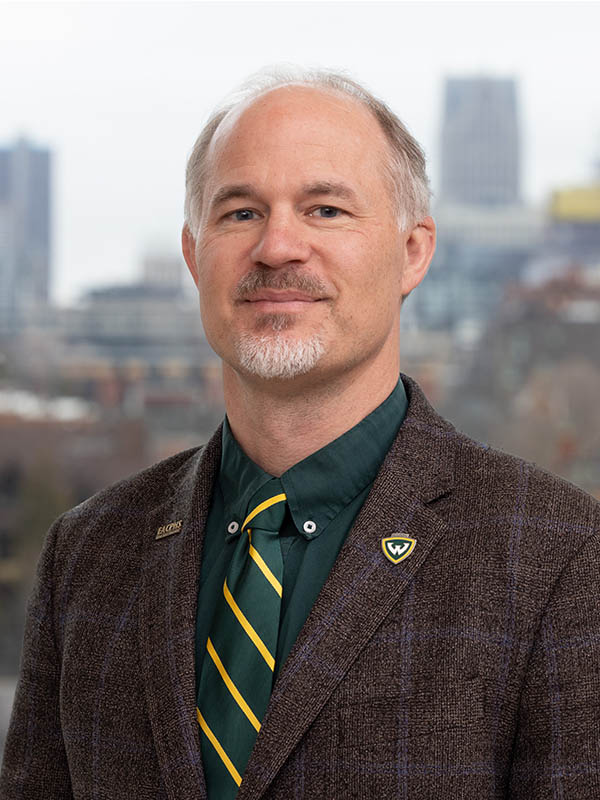 Brian S. Cummings, Ph.D., is an accomplished researcher and academic leader who currently serves as the Dean of Wayne State University’s Eugene Applebaum College of Pharmacy and Health Sciences. Dr. Cummings’ research interests lie in molecular mechanisms related to cell death, particularly the role of lipids and water disinfection byproducts. His work contributes significantly to the field of toxicology. He has also been involved in editorial roles for several scientific journals.
Brian S. Cummings, Ph.D., is an accomplished researcher and academic leader who currently serves as the Dean of Wayne State University’s Eugene Applebaum College of Pharmacy and Health Sciences. Dr. Cummings’ research interests lie in molecular mechanisms related to cell death, particularly the role of lipids and water disinfection byproducts. His work contributes significantly to the field of toxicology. He has also been involved in editorial roles for several scientific journals.
 Tricia Miranda-Hartsuff, M.P.H. Ph.D., is a tenured Associate Professor of Public Health within Wayne State University’s College of Liberal Arts and Sciences. Her research focuses on the intersectionality of gender, race, class, and immigration when evaluating health disparities. Dr. Miranda-Hartsuff has also added the critical assessment of the implementation of health in all policies and sociopolitical context to the discourse on health inequity and as a lens to examine important conditions that affect vulnerable populations.
Tricia Miranda-Hartsuff, M.P.H. Ph.D., is a tenured Associate Professor of Public Health within Wayne State University’s College of Liberal Arts and Sciences. Her research focuses on the intersectionality of gender, race, class, and immigration when evaluating health disparities. Dr. Miranda-Hartsuff has also added the critical assessment of the implementation of health in all policies and sociopolitical context to the discourse on health inequity and as a lens to examine important conditions that affect vulnerable populations.
 Isaac Powell, M.D., is a professor in the Department of Urology at Karmanos Cancer Institute and Wayne State University School of Medicine. As a clinical member of the Population Studies and Disparities Research and Developmental Therapeutics programs at Karmanos Cancer Institute, Dr. Powell contributes to the research, education and clinical investigation missions of the cancer center. His commitment to cancer research is centered on the many ways prostate cancer impacts African Americans in comparison to other ethnic groups. Currently his research is directed toward ethnic differences in the biology/genetics of prostate cancer.
Isaac Powell, M.D., is a professor in the Department of Urology at Karmanos Cancer Institute and Wayne State University School of Medicine. As a clinical member of the Population Studies and Disparities Research and Developmental Therapeutics programs at Karmanos Cancer Institute, Dr. Powell contributes to the research, education and clinical investigation missions of the cancer center. His commitment to cancer research is centered on the many ways prostate cancer impacts African Americans in comparison to other ethnic groups. Currently his research is directed toward ethnic differences in the biology/genetics of prostate cancer.